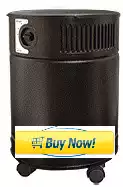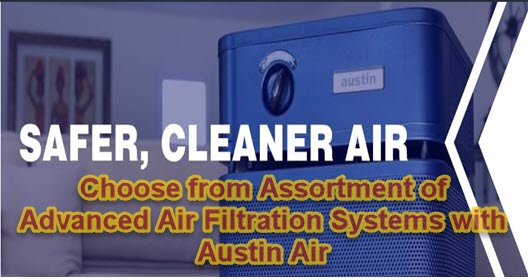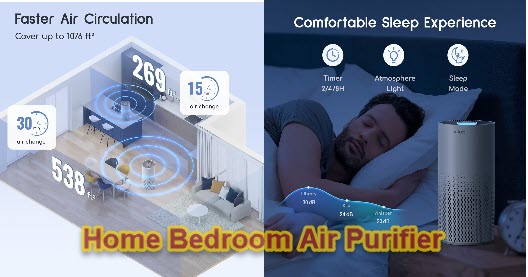Home of HVAC Comfort for You
Imagine stepping into a room where the air feels just right—not too warm, not too cold, and every breath you take is refreshingly clean.
This sensory comfort, something we often don’t even think about, is thanks to the vital role HVAC systems play in maintaining indoor air quality.
In our indoor-focused lives, the temperature, humidity, and air quality are crucial to both our health and lifestyle.
At the heart of creating and maintaining this indoor haven is a well-functioning HVAC system.
It’s more than just heating or cooling—it’s an intricate setup designed to regulate temperature, manage humidity, and filter out pollutants to ensure our air is up to quality standards.
Each part—heating, cooling, or ventilation—works together to support a healthy indoor environment.
In this piece, we’ll explore how HVAC systems enhance our indoor air quality, ultimately offering better health and comfort.
From unpacking how these systems work to maintain ideal conditions, to highlighting their health benefits and efficiency gains, we’ll gently guide you on selecting the right HVAC services and making the most of cutting-edge technology for perfect indoor climate control.
Table of Contents Home of HVAC Comfort for You
The Importance of Indoor Air Quality
Maintaining exceptional indoor air quality is integral to a comfortable and healthy living environment
A well-functioning HVAC system plays a pivotal role by efficiently reducing airborne contaminants such as dust, mold, and allergens
This reduction minimizes the risk of respiratory issues and allergies, enhancing overall well-being.
Proper humidity levels are essential for preventing mold growth and eliminating the discomfort of dry air, both of which are effectively managed by modern HVAC systems.
By maintaining optimal humidity, HVAC systems contribute to healthier air and a more comfortable home.
Moreover, advanced HVAC systems are designed to efficiently filter pollutants and eliminate unpleasant odors, ensuring a continuous supply of fresh air.
This is crucial in supporting overall health and enhancing the comfort of living spaces.
To sustain the efficiency of these systems, regular maintenance is key.
It ensures that the HVAC system remains effective in removing indoor air pollutants and maintaining desired humidity levels.
Quick Benefits of HVAC Systems:
- Improved Air Quality: Reduces contaminants and allergens
- Humidity Control: Prevents mold and dry air discomfort
- Enhanced Comfort: Consistent air circulation and filtration
Don’t overlook the importance of indoor air quality, it’s a cornerstone of home comfort and health
Regular maintenance and efficient HVAC systems ensure you breathe easily.
Key Components of HVAC Systems
A reliable HVAC system in your home is pivotal for achieving year-round comfort.
Composed of several key components, including a thermostat, furnace, air conditioner unit or heat pump, and an indoor air-quality system, each part plays a vital role in maintaining the desired temperature and air quality.
The system is designed to provide seamless integration between heating, cooling, and ventilation, optimizing energy efficiency while ensuring the utmost comfort and health.
Understanding these components and their functions can help you maximize your HVAC system’s potential, ensuring you maintain a comfortable indoor environment all year round.
Heating Systems
Heating systems are essential for maintaining warmth during colder months, ensuring homes remain cozy and comfortable.
Central to most HVAC systems is a furnace or heat pump, which heats the air and distributes it throughout the building via ducts.
Thermostats, acting as the control unit, regulate the desired temperature, prompting the heating system to activate as needed.
Proper maintenance of heating systems is crucial for energy efficiency, potentially reducing energy bills when handled by a licensed professional.
During peak seasons, routine check-ups by HVAC services guarantee the system operates optimally, ensuring uninterrupted comfort and warmth.
Air Conditioning Systems
Air conditioning systems are integral to an HVAC setup, tasked with keeping indoor spaces cool and comfortable during warm periods.
Modern units often employ variable-speed compressors, allowing them to adjust cooling output based on temperature demands, significantly enhancing energy efficiency and reducing utility bills.
Components like evaporator and condenser coils are vital, facilitating efficient heat exchange and moisture removal from the air.
With variable speed handlers, these systems offer precise temperature control and consistent cooling, which is crucial for indoor comfort.
Additionally, air conditioning units improve indoor air quality by filtering out airborne allergens and pollutants.
Ventilation Systems
Ventilation is a critical component of HVAC systems, significantly impacting indoor air quality and overall comfort.
By effectively removing pollutants, allergens, and unpleasant odors, a well-maintained ventilation system ensures a healthier living environment.
Essential for introducing fresh air, these systems also manage humidity, preventing mold growth and dry air repercussions on health.
The inclusion of humidity control in modern HVAC systems addresses condensation issues, which can otherwise affect both health and comfort.
Through energy-efficient operation, these vent systems not only optimize air quality but can also contribute to lowering energy bills, making them a vital aspect of any home comfort strategy.
How HVAC Systems Maintain Indoor Air Quality
HVAC systems play a pivotal role in fostering healthier living environments by significantly enhancing indoor air quality.
These systems are meticulously designed to filter out dust, mold, and other airborne contaminants that could trigger respiratory issues or allergies.
Beyond filtering harmful particles, HVAC systems also regulate humidity levels, which is crucial for preventing the growth of mold and mitigating the adverse effects of dry air on both health and home furnishings.
By removing pollutants, allergens, and odors while introducing fresh air, these systems create a cleaner and more pleasant indoor atmosphere.
Efficiently functioning HVAC systems contribute to energy efficiency, resulting in lower energy bills.
They achieve this through a harmonious combination of a thermostat, furnace, air conditioner, heat pump, and an indoor air-quality system, all working together to optimize home comfort and air quality.
Temperature Regulation
HVAC systems are indispensable for achieving comfortable indoor temperatures throughout the year.
They provide warmth during the chilly winter months and ensure cooling relief in the scorching summer heat.
This ability to control the indoor environment directly correlates with increased productivity and energy savings by employing energy-efficient practices.
With the advent of advanced programmable thermostats, homeowners can now easily customize temperature settings to align with their personal comfort preferences and daily schedules.
These systems allow for precise temperature adjustments, ensuring a consistently comfortable indoor climate for both living and working spaces.
Consequently, maintaining appropriate indoor temperatures is a vital aspect of achieving thermal comfort, significantly enhancing the overall quality of life indoors.
Humidity Control
Controlling indoor humidity levels is another critical function of HVAC systems, as it prevents the growth of mold, reduces condensation, and combats the adverse effects of dry air.
Proper humidity management is key to maintaining a healthy and comfortable home environment.
Functioning air conditioners naturally reduce humidity levels, though in some climates, a whole-house dehumidifier might be necessary to maintain ideal conditions.
Variable-speed AC units, known for their efficiency, are particularly effective at managing indoor humidity compared to their single-speed counterparts.
Installing a whole-home dehumidifier not only helps balance temperature differences across multi-story homes but also diminishes potential pest issues, including insects like spiders and centipedes.
By optimizing humidity, the performance of air conditioning units is enhanced, leading to improved overall efficiency.
Air Filtration and Purification
Indoor air pollution often surpasses outdoor levels, with pollutants, allergens, and odors substantially affecting air quality.
HVAC systems, equipped with air filters, play a vital role in capturing these tiny particles to enhance the air we breathe.
Regular maintenance, such as replacing air filters every one to three months, is essential for ensuring optimal airflow and maintaining air quality.
Furthermore, advanced air purification systems, including UV light air purifiers and air scrubbers, can significantly bolster indoor air quality by effectively neutralizing mold, pollen, and chemical vapors.
The role of a quality HVAC system extends beyond temperature control; it actively contributes to air purification by exchanging stale air for fresh air and effectively removing harmful contaminants, underscoring its integral role in promoting a healthier indoor environment.
The Impact of HVAC on Health and Comfort
Heating, Ventilation, and Air Conditioning (HVAC) systems are integral to modern living, providing not only climate control but also regulating indoor air quality in homes.
This critical function ensures that humidity levels are balanced, thereby preventing issues such as mold growth and excessively dry air which can disrupt personal comfort and health.
By efficiently managing temperature and air quality, HVAC systems help create an environment that supports well-being and energy sustainability.
Investing in professional maintenance, like HVAC comfort protection plans, can further enhance these benefits by ensuring that the system remains in optimal condition, which improves energy efficiency, reduces the frequency of breakdowns, and prolongs the lifespan of the equipment.
Respiratory Health
Indoor air quality is directly linked to respiratory health, and HVAC systems play a crucial role in mitigating risks.
These systems filter out pollutants and allergens from the air, effectively reducing indoor contaminants that can lead to respiratory issues.
By maintaining proper humidity levels, HVAC systems prevent mold growth—a common trigger for respiratory problems.
Furthermore, efficient ventilation within these systems aids in managing airflow, ensuring that a constant supply of clean air reduces airborne contaminants.
Regular maintenance is essential to guarantee that air filters and other components operate optimally, safeguarding the respiratory health of all inhabitants by consistently providing cleaner air quality.
Energy Efficiency and Cost Savings
Energy efficiency is a significant advantage of modern HVAC systems, as they can greatly diminish monthly energy bills and lower overall greenhouse gas emissions.
Regular maintenance is key to ensuring these systems operate efficiently, which not only conserves energy but also benefits homeowners financially and environmentally.
Upgrading to high-efficiency systems can further enhance savings and sustainability, made more appealing by federal incentives like tax credits and rebates.
Routine inspections, part cleaning, and lubrication prevent blockages and reduce the strain on the system, maintaining operational efficiency and further cutting costs.
Professional tune-ups are a vital part of keeping HVAC systems running efficiently over the long term.
Noise Reduction and Comfort
The advancement in HVAC technology, particularly with variable-speed systems, has made significant strides in reducing noise levels associated with indoor climate control.
Unlike single-stage HVAC systems which can be loud due to their frequent cycling on and off, variable-speed units operate at lower intensities continuously, thus minimizing sound.
This quieter operation contributes to a serene home environment, enhancing overall comfort by reducing noise pollution.
Variable-speed furnaces and air conditioners further amplify indoor comfort by keeping disruptive noise to a minimum.
Choosing HVAC systems with variable-speed technology can markedly improve your living space, cultivating a peaceful atmosphere through reduced operational noise.
Choosing the Right HVAC Company
Finding the right HVAC company to maintain or install your heating and cooling systems is crucial for ensuring long-term comfort and efficiency in your home.
A reputable HVAC firm should not only possess the necessary licenses and certifications, such as the EPA 608 for handling refrigerants, but also provide thorough evidence of a stellar track record through customer reviews and testimonials.
It’s important to ensure the company is bonded and insured to protect against any potential accidents during service.
Comparing written estimates from several firms can provide a clear picture of pricing and service scope.
Selecting a dependable HVAC company involves evaluating their technical expertise, service variety, and customer service effectiveness.
Expertise and Experience
When it comes to HVAC services, expertise and experience are critical components.
Providers with longstanding operations in the Warner Robins area bring a wealth of knowledge gained over years of handling various HVAC systems.
From traditional furnaces to modern, energy-efficient models, an experienced company can manage all kinds of heating and cooling requirements.
Their technicians, having been through rigorous background checks, are well-trained for complex repairs and maintenance tasks.
A seasoned HVAC contractor not only quickly identifies issues but also executes comprehensive repairs to meet specific needs.
Moreover, the correct installation of HVAC equipment by skilled professionals ensures improved energy efficiency, translating to lower energy bills over time.
Range of Services Offered
A leading HVAC company offers a comprehensive range of services that cover every need you might encounter with your HVAC equipment.
Repair, installation, troubleshooting, and replacement of HVAC systems are fundamental services available to maintain optimal indoor air quality and comfort.
Preventive maintenance and tune-ups are crucial for avoiding unexpected breakdowns and ensuring top system performance.
Many companies provide 24/7 emergency services to address any urgent issues that could leave you without comfort.
Additionally, companies often extend discounts and financing options to help manage costs effectively.
Enhanced HVAC comfort protection plans might include perks like priority service calls, loyalty rewards, and additional discounts, further making them appealing choices for homeowners seeking reliability and peace of mind.
Customer Support and Emergency Services
Effective customer support is a cornerstone of enhancing the overall HVAC service experience.
Essential to this is providing round-the-clock customer support and emergency repair services, ensuring clients have access to help at any hour of the day.
Friendly office staff play a vital role by scheduling appointments at clients’ convenience and ensuring emergencies are addressed swiftly.
Such providers prioritize customer time by arriving promptly within scheduled windows and responding to urgent situations without imposing additional charges for after-hours services.
In critical scenarios, some companies even offer portable heating and cooling solutions to meet the comfort needs of temperature-sensitive individuals while awaiting full system repairs.
This commitment to customer care cements their reputation as customer-oriented service providers.
The Role of Technology in HVAC Systems
Technology has become an integral part of modern HVAC systems, offering unparalleled levels of control and efficiency for enhanced home comfort.
Innovations such as smart home integration with HVAC technology enable homeowners to adjust and monitor their home climate remotely, utilizing connected devices and smart thermostats that communicate with the overall heating and cooling system.
Variable speed systems and advanced air quality solutions enhance indoor comfort by maintaining consistent temperatures and improving air quality.
Energy-efficient technologies promise substantial savings on energy bills while contributing to environmental sustainability.
Additionally, emergency HVAC services ensure that urgent climate control issues are resolved promptly to maintain comfort throughout any weather conditions.
Variable Speed Systems
Variable speed systems represent a significant advancement in HVAC technology, offering tailored comfort solutions by adjusting their output to meet precise heating and cooling needs.
Unlike traditional single-speed units that stop and start completely, variable speed technology modulates fan speeds to maintain a stable indoor temperature, reducing the abrupt fluctuations often experienced in less sophisticated systems.
This capability is particularly advantageous in larger or multi-story homes, where managing temperature and humidity levels can be more challenging.
By maintaining set interior temperatures for longer periods without frequent cycling on and off, these systems ensure energy efficiency as well as consistent comfort, enhancing the overall home environment.
Smart Thermostats
Smart thermostats epitomize how digital technology can enhance residential energy efficiency and comfort management
With Wi-Fi connectivity, these devices allow users to alter home temperatures and set schedules from anywhere, facilitating better energy management and convenience
Advanced programmable versions can adjust climates automatically according to pre-set user schedules, ensuring optimal use of the HVAC system while minimizing effort
Not only do smart learning thermostats adapt to user behavior to optimize temperature settings for energy savings, but proper placement within the home also ensures accurate readings by avoiding heat sources
These innovations contribute substantially to maintaining a comfortable and efficient home climate
Energy-efficient Technologies
Energy-efficient technologies are transforming the way HVAC systems function, offering substantial reductions in monthly cooling and heating costs while also promoting sustainability by lowering greenhouse gas emissions.
Modern HVAC equipment is engineered to provide peak comfort using less energy, significantly benefiting homeowner energy bills and the environment.
Properly maintained systems that conform to energy-efficient standards can result in even greater savings.
Furthermore, homeowners can take advantage of federal incentives designed to encourage the upgrade to high-efficiency heating and cooling systems, thereby securing additional financial savings.
The integration of hybrid HVAC technologies also plays a crucial role in reducing energy bills, fostering an eco-friendly path to superior home comfort.
Maintenance and Care of HVAC Systems
Proper maintenance and care of HVAC systems are crucial for ensuring home comfort and operational efficiency.
These systems are integral to maintaining optimal indoor temperatures and enhancing air quality within your home.
Regular maintenance not only helps in prolonging the life of your air conditioning and heating equipment but also significantly reduces energy bills by promoting energy efficiency.
By investing in routine care, you can safeguard your HVAC system against sudden breakdowns and costly repairs.
Implementing structured maintenance routines supports a harmonious functioning of heating and cooling systems and enhances the overall indoor environment.
Regular Maintenance Checks
Regular maintenance checks are the backbone of a well-functioning HVAC system
By consistently addressing wear and tear, these checks prevent extensive damage and extend the life of your HVAC equipment.
Tasks such as cleaning coils and checking refrigerant levels ensure that the system operates efficiently, thus delivering energy savings.
Changing air filters every 1-3 months is vital to prevent obstructions that can force your system to overwork.
Seasonal inspections by licensed professionals help preserve the balance between HVAC components and airflow, ensuring that every element functions cohesively.
Maintaining sealed ductwork is equally important to keep conditioned air circulating efficiently, ultimately lowering your energy bills.
Importance of a Comfort Protection Plan
A comfort protection plan is an invaluable resource for maximizing your HVAC system’s performance and securing your peace of mind.
By scheduling professional tune-ups, these plans significantly enhance system efficiency and lower energy costs, preventing premature component failures.
They offer priority services to guarantee swift assistance in case of any HVAC disturbances.
Engaging in a comfort protection plan ensures consistent maintenance, which in turn sustains optimal system functionality and superior indoor air quality.
These plans also help prolong the life of your HVAC systems through continuous professional oversight.
Moreover, by addressing comfort concerns like humidity and temperature irregularities, they provide comprehensive solutions to improve the quality of indoor living environments.



